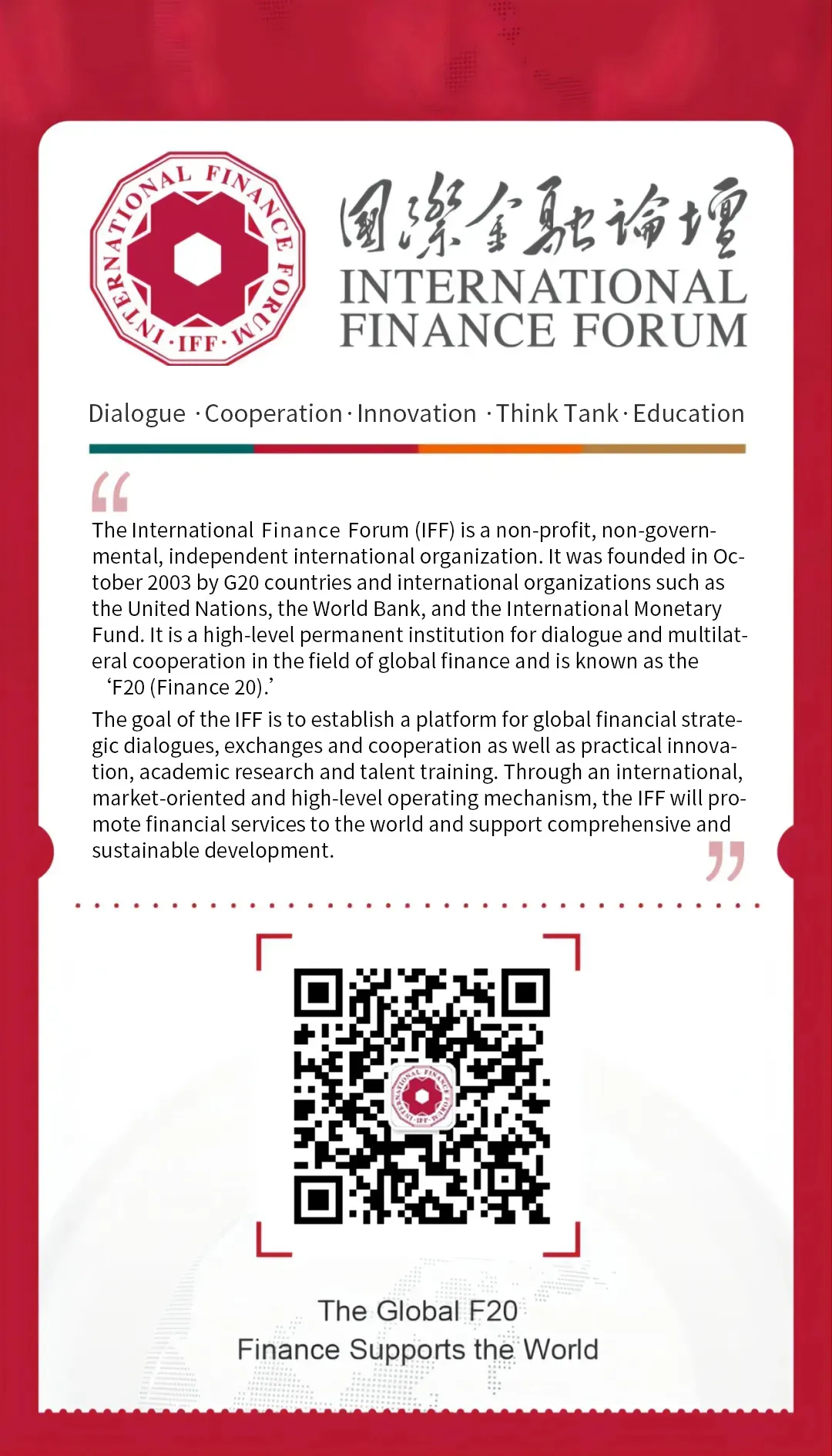HOME>NEWS CENTER>Newsletters
IFF Newsletter | Profit Rises, Tariff Threats
TIME:2025-05-30
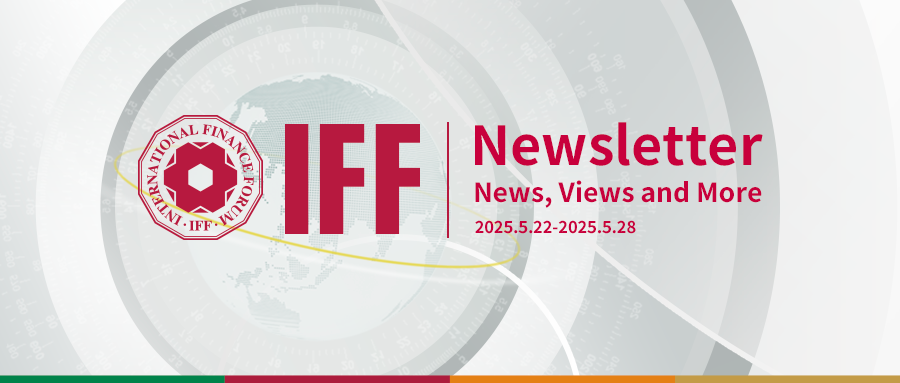
From the Editor
Chinese industrial profits gained momentum in April, bolstered by sustained policy support. According to data released by the National Bureau of Statistics (NBS) on May 27, profits at major industrial firms rose 3% from a year earlier, accelerating from March's 2.6% increase. This uptick demonstrates the positive effects of policy measures on the industrial sector.
The recovery trend has maintained its strength through the first four months of the year. NBS figures show that industrial profits grew 1.4% during this period, improving from the 0.8% expansion recorded in the first quarter. The continued upward trajectory in industrial profitability points to a strengthening economic foundation and validates the effectiveness of ongoing policy initiatives in driving industrial growth.
US President Donald Trump on May 23 issued a threat to impose a 50% tax on all imports from the European Union and a 25% tariff on Apple products, unless iPhones are manufactured in the United States.
The Republican president expressed his intention to levy higher import taxes on goods from the EU compared to those from China. Trump was clearly frustrated by the lack of progress in trade negotiations with the EU. Despite the EU's proposal to mutually cut tariffs to zero, the president has publicly insisted on maintaining a baseline 10% tax on most imports.

The 2nd Sci-Tech Finance Dialogue of the International Finance Forum (IFF) — Hubei-Hong Kong Cooperation & Integration, and the WHIIID Hong Kong Tech Innovation Hive Collabration Forum, is scheduled to be held on June 5, 2025, in Wuhan, Hubei Province.
This summit will focus on strengthening technological and financial collaboration between Hubei and Hong Kong. It aims to help technology-driven enterprises in Central China better understand key aspects of entering the Hong Kong market, including legal frameworks, financial planning, and human resources management. The event will also explore how Hong Kong can serve as a strategic gateway for Chinese innovation-driven companies to expand globally. Furthermore, it seeks to introduce mainland companies to Hong Kong’s capital markets and financial services, creating new IPO opportunities from Central China for Hong Kong’s financial ecosystem.
China, UAE Advance Cross-border Payment Cooperation

China's Cross-Border Interbank Payment System (CIPS) and the central bank of the United Arab Emirates (UAE) have signed a memorandum of understanding to enhance cross-border payment cooperation, the People's Bank of China (PBOC), China's central bank, announced on May 28.
The signing is expected to improve payment infrastructure and the efficiency of cross-border payments, according to an online statement by the PBOC, which administers and regulates CIPS.
Accordingly, CIPS and the central bank of the UAE will work together to develop a cross-border payment connectivity program, which will provide local currency clearing services for financial institutions in the Middle East and North Africa.
The two sides will also deepen exchanges on risk management and compliance, and make cross-border payment systems safer and more stable, according to the statement.
Chinese, European Enterprises Vow to Deepen Semiconductor Ties
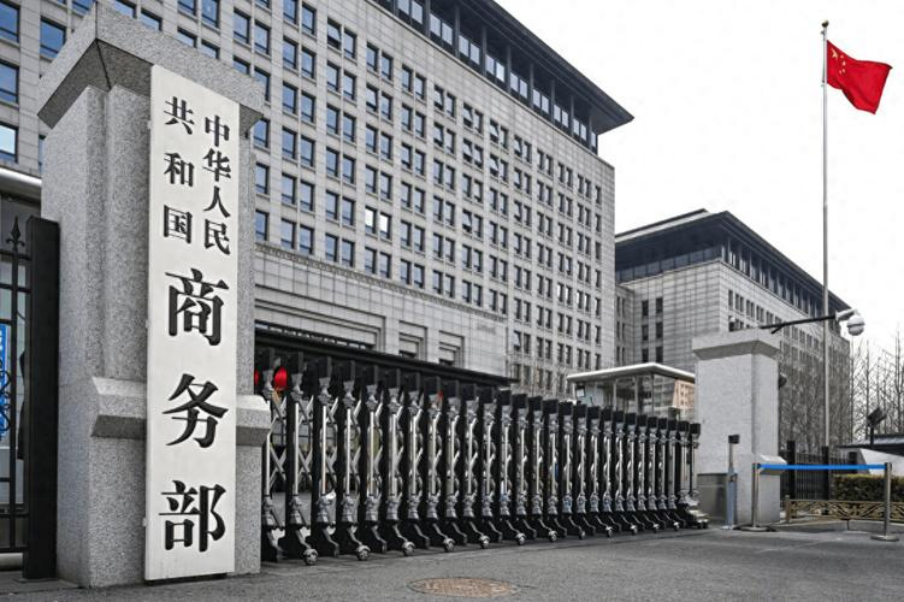
The Ministry of Commerce said that it held a meeting on May 27 to discuss deepened cooperation in the semiconductor sector between China and Europe.
Attendees included officials from central government departments, representatives from the China Semiconductor Industry Association and the European Union Chamber of Commerce in China, as well as over 40 semiconductor enterprises from both sides.
The meeting said that China and Europe occupy critical positions in the global semiconductor supply chain. Strengthening collaboration in this field aligns with the shared interests of both sides.
Attendees highlighted the meeting's role as a valuable platform for Chinese and European semiconductor companies to deepen mutual understanding, enhance trade confidence, and expand exchanges and cooperation.
German Enterprises Plan to Increase Investments in China: Report
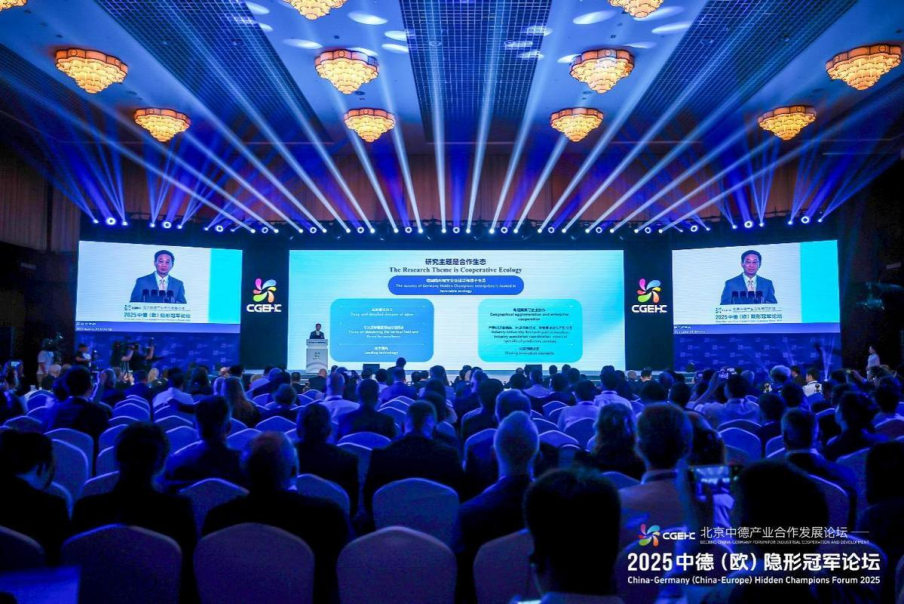
Over half of German enterprises surveyed plan to increase their investments in China within the next two years, according to a report issued at a three-day forum for Sino-German industrial cooperation and development that ended on May 27 in Beijing.
Titled "2025 China-Germany Hidden Champions Open Cooperation Report," the document was released during the China-Germany (China-Europe) Hidden Champions Forum 2025.
It also reveals that German and European hidden champions still have more than double the current growth potential in the Chinese market.
The report was jointly released by the International Cooperation Center of the National Development and Reform Commission (ICC) and the DEZ German European Centre for SME Cooperation in China. The forum attracted over 600 participants from China and abroad, with the number of international attendees nearly doubling year on year.
China's Industrial Profit Growth Speeds up in April as Policy Support Kicks In

China's industrial profits grew at a faster pace in April, buoyed by sustained policy measures, according to the official data released on May 27.
Profits at large industrial enterprises widened 3 percent in April from a year earlier, compared with a growth of 2.6 percent in March, figures released by the National Bureau of Statistics showed.
In the first four months of the year, industrial profits rose 1.4 percent, versus a 0.8 percent increase in the first three months of the year, continuing the recovery trend, according to NBS data.
Industrial production has achieved rapid growth, boosting the profits of large firms, said Yu Weining, a statistician at the NBS. Industries engaged in new quality productive forces, such as equipment and high-tech manufacturing, have experienced great profit growth, highlighting the resilience of the industrial economy, he added.
China's Digital Product Sales Rise on Subsidy Support

Sales of digital products in China have expanded over the past few months, spurred by a government-backed subsidy program, the Ministry of Commerce said on May 23.
As of May 22, over 48 million consumers had participated in the digital products subsidy scheme, buying a total of 51.48 million products and generating about 143.3 billion yuan (about 19.9 billion U.S. dollars) in sales, data from the ministry showed.
From January to April, total retail sales of communication appliances surged 25.4 percent from a year ago, representing the fastest growth among 16 major consumer goods categories, the data showed.
The ministry said that subsidy policies for digital products have facilitated an upgrade towards higher-end products in the market. Third-party data showed that the sales volume of smartphones priced between 2,000 to 4,000 yuan rose 13 percent year on year in the first four months, while those in the 4,000 to 6,000 yuan range saw sales jump 43 percent.
Central, Eastern European Businesses Eye New Growth in Booming Chinese Market
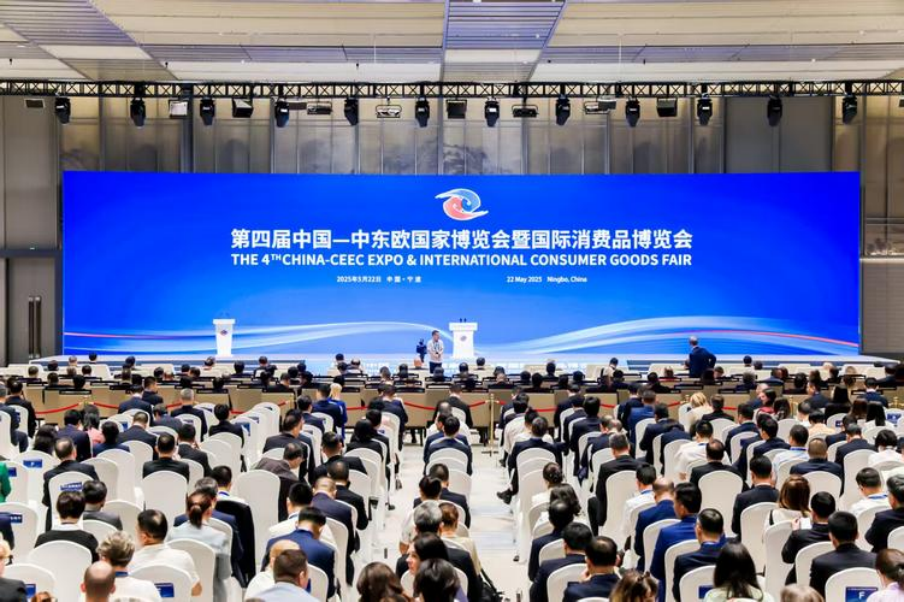
Businesses from Central and Eastern European countries (CEECs) and beyond have set their sights on a major trade and investment event ending May 25 in Ningbo, a bustling port city in eastern China, hoping to strengthen ties and unlock new opportunities in one of the world's most dynamic markets.
"The Chinese market is very attractive, even though it's geographically far away, but we are interested because we see quite a potential for our companies," Urska Bencina, undersecretary at SPIRIT Slovenia Business Development Agency, said at the 4th China-CEEC Expo & International Consumer Goods Fair. Slovenia is the Guest of Honor of the expo this year.
From advanced manufacturing to food and lifestyle brands, the four-day expo has attracted a total of 435 companies from the CEEC region and beyond, showcasing their signature products and cutting-edge technologies in pursuit of new orders and partnerships.
Newsletter
International News
IMF Raises Britain's 2025 Growth Forecast, Citing Economic Recovery

The International Monetary Fund (IMF) on May 28 revised Britain's 2025 economic growth to 1.2 percent, up slightly from the 1.1 percent forecast in April.
The IMF attributed the revision to an economic recovery in Britain, noting that growth is expected to gain momentum after a slowdown in the second half of 2024.
Preliminary data showed that the British economy outperformed market expectations in the first quarter of 2025, with gross domestic product (GDP) rising by 0.7 percent quarter-on-quarter.
The IMF projected the country's economy to grow 1.4 percent in 2026. It cited several contributing factors, including monetary easing, improved household wealth and an uptick in consumer confidence, and increased public spending outlined in the October budget.
Looking ahead, the IMF noted that the British government's fiscal strategy for the next five years appropriately supports growth while safeguarding fiscal sustainability. But it cautioned that difficult fiscal choices will likely be needed to address spending pressures and rebuild fiscal buffers in the longer term.
EU Set to Undershoot 2030 Climate Target by 1 Percentage Point
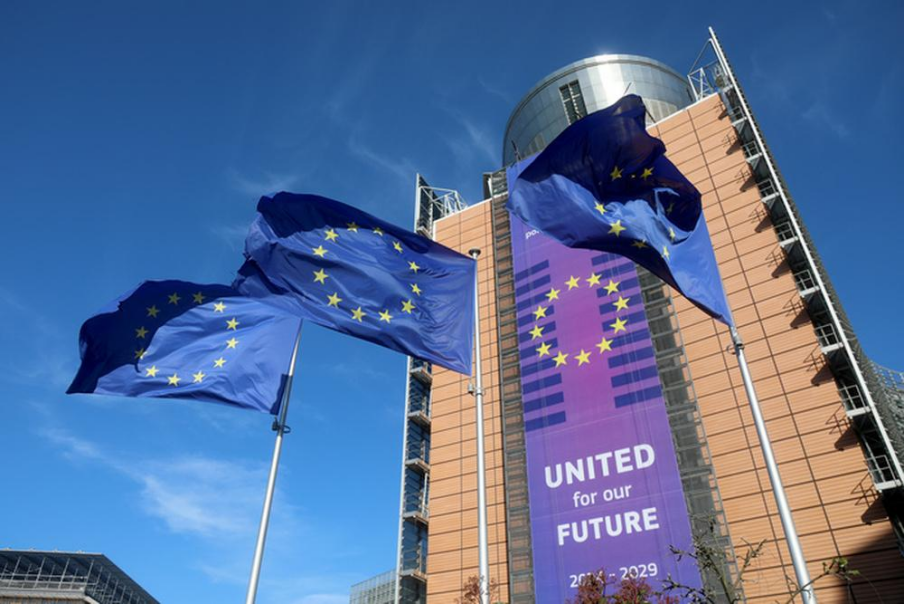
The European Union is on track to miss its legally binding 55 percent greenhouse-gas reduction target for 2030 by roughly one percentage point, the European Commission said on May 28.
In an assessment of the final National Energy and Climate Plans (NECPs) submitted by member states, the Commission found that existing and planned measures would cut net EU emissions by approximately 54 percent below 1990 levels by 2030, compared with the 55 percent reduction enshrined in the European Climate Law.
Under that law, the bloc aims to become climate-neutral by 2050, with an interim goal of at least a 55 percent emissions cut by 2030.
Five out of 23 national plans still fall short on effort-sharing obligations, and only nine governments expect to meet their land-use targets, the report said. It urged member states to deploy agricultural funds and state-aid flexibilities to boost carbon sinks.
The Commission has called on Belgium, Estonia and Poland to submit their overdue final NECPs immediately and stressed that "setting a clear 2040 climate target now will be key to steer actions and investments post-2030."
Japan Net External Assets Hit Record, But Loses Top Creditor Status For First Time in 34 Years

Japan lost its position as the world’s largest creditor nation for the first time in 34 years, giving up the title to Germany despite posting a record amount of overseas assets, official data showed on May 27.
Japan’s net external assets reached 533.05 trillion yen (3.7 trillion US dollars) at the end of 2024, rising about 13% from the previous year, according to data released by the Ministry of Finance. While the figure marked an all-time high, it was overtaken by Germany, whose net external assets totaled 569.7 trillion yen. China stayed in third place with net assets of 516.3 trillion yen. Japan began its streak at the top by overtaking Germany in 1991.
Japan's total external assets grew 11.4 percent from the previous year to 1,659.02 trillion yen, driven by a weaker yen that raised the value of foreign currency-denominated holdings.
The yen has depreciated by 11.7 percent from the end of 2023, with the exchange rate at 157.89 yen to the dollar.
Singapore Sees 3.2 pct Real Wage Growth in 2024 Amid Easing Inflation

According to the ministry's annual wage report, real wage growth rebounded from 0.4 percent in 2023, as nominal wage increases outpaced inflation, which had eased over the past year.
The report covers full-time resident employees who remained with the same employer for at least one year. Their nominal total wages rose by 5.6 percent in 2024, up from 5.2 percent in 2023.
The proportion of profitable establishments declined slightly, with 80.8 percent remaining profitable in 2024, down from 82.1 percent a year earlier. Sectors such as real estate services, construction, and wholesale trade saw fewer profitable businesses, while the manufacturing sector recorded an increase in profitable establishments.
The share of establishments that provided wage increases rose from 65.6 percent in 2023 to 78.3 percent in 2024. Yet most wage adjustments were attributed to past organizational performance rather than forward-looking optimism.
Trump Threatens 50 Pct Tariffs on EU, 25 Pct Penalties on Apple

US President Donald Trump on May 23 threatened a 50 percent tax on all imports from the European Union as well a 25 percent tariff on Apple products unless iPhones are made in the United States.
The Republican president said he wants to charge higher import taxes on goods from the EU than from China. Trump was upset by the lack of progress in trade talks with the EU, which has proposed mutually cutting tariffs to zero even as the president has publicly insisted on preserving a baseline 10 percent tax on most imports.
"Our discussions with them are going nowhere!" Trump posted on Truth Social. "Therefore, I am recommending a straight 50 percent Tariff on the European Union, starting on June 1, 2025. There is no Tariff if the product is built or manufactured in the United States."
New US House Bill Blasted For Raising Debt, Cutting Programs For Lower Income People
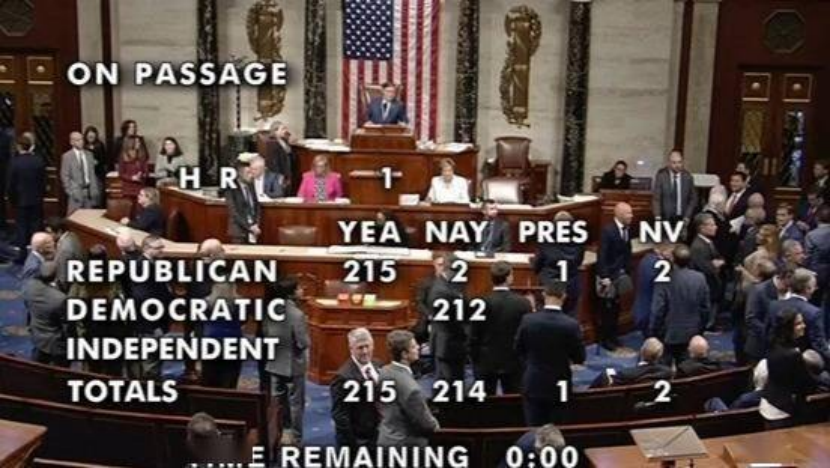
The US House of Representatives on May 22 has narrowly passed a large-scale tax and spending bill, which has drawn strong outcry from observers and the public for what they say will be heightening the already record-high national debt, and depriving lower income people the scarce resources they enjoy by cutting some programs such as Medicaid.
US President Donald Trump's "One, Big, Beautiful Bill Act" was approved by a razor-thin Republican majority, with 215 voting for the bill and 214 against.
The bill will extend the corporate and individual tax cuts passed by Trump during his first term in 2017, provide new tax relief for tips, overtime and car loans, increase defense spending, and allocate more funds to combat illegal immigration, fulfilling Trump's campaign promises on tax cuts and other issues.
The bill will also repeal several clean energy incentives promoted by former President Joe Biden and raise the eligibility thresholds for Medicaid and food assistance for low-income groups, in an attempt to reduce federal spending.
